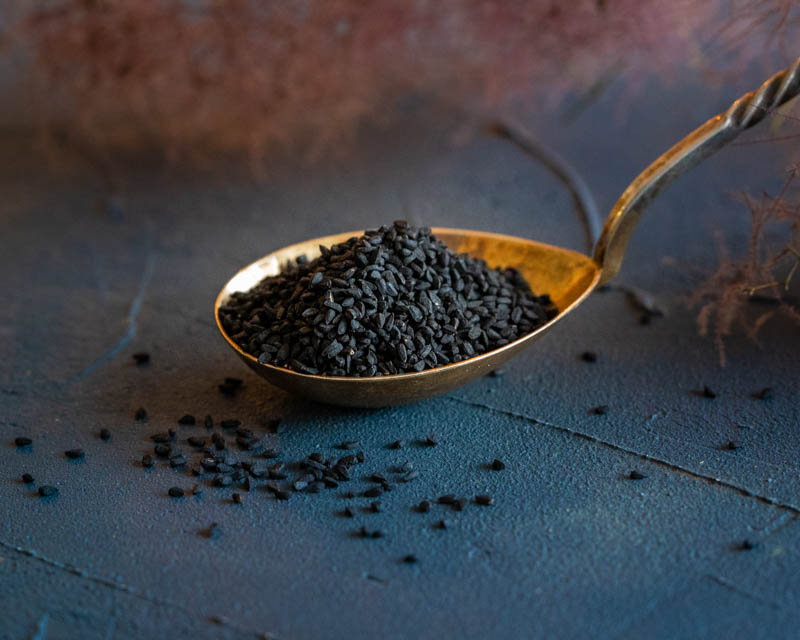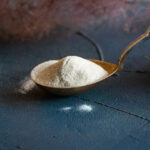
Organic black cumin seeds
From 1.80€


The journey of organic blackcurrant (black cumin) from traditional use to modern wellness ally.
The cumin, a small but useful seed derived from the Nigella sativa plant, has a rich history and a growing scientific interest. Black cumin, or Kalonji, is a flowering plant that grows in South and South-West Asia. Although popularly known as black cumin, it should not be confused with ‘Kala Jeera’, a cumin belonging to the Biniu bulbocastanum family. This unpretentious seed, often called black cumin or black seed, boasts a wide range of health benefits.
Attention
Although black cumin is generally safe to consume, some people may be sensitive to the seeds or oil of cumin. If you are a first-time user, it is advisable to start with a small amount.
If you have a serious medical condition, please take care when using black cumin seeds or black cumin oil as a supplement or medicine.
It is not recommended for use by pregnant or breastfeeding women.
Black cumin seeds are a popular spice in Middle Eastern and Indian cuisine, often used in dishes such as curries, stews, breads and pickles.
Black cumin powder can be used to flavour coffee or tea.
Sources:
https://www.healthline.com
https://www.webmd.com
NOTE. The information contained herein should not be construed as a recommendation for treatment or other health issues. We encourage you to make personal decisions about your personal health, taking into account a wide range of sources of information.
Organic blackclover seeds 100%
Energy and nutritional value (100g)
Energy 1513 kJ / 362 kcal
Fat 14.6 g
- of which saturates 0,6 g
Carbohydrates 11.9 g
- of which sugar 0,6 g
Protein 19.8 g
Salt 0,0 g
Store in a dry, dark place


